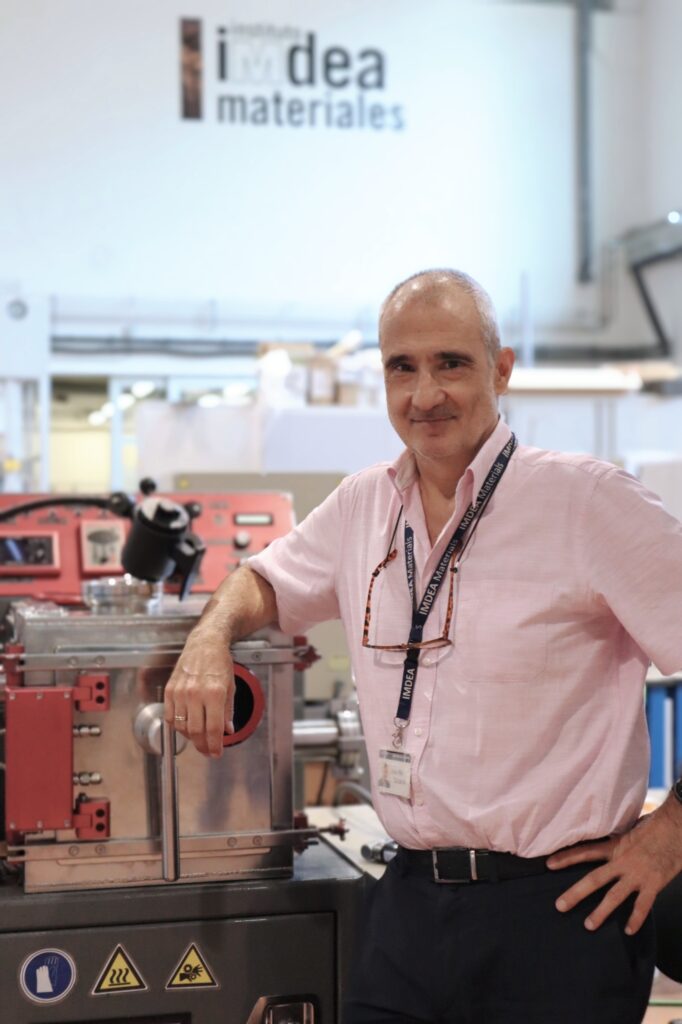Having concluded his term as Director of IMDEA Materials, Prof. José Manuel Torralba takes “a very positive view” of the achievements made during his tenure.
After four years at the helm, Prof. Torralba recently stepped down from the role, which has since been taken on by his former Deputy Director, Prof. Jon Molina, following a competitive international selection process.
During this time, the Institute has grown in size, capacity, and reputation, establishing itself as an international benchmark in Materials Science and Engineering.
According to Prof. Torralba, this progress has been possible thanks to the combined efforts of all members of the Institute, and a management approach focused on excellence and collaboration.
Added to this is an efficient administrative system, built up over many years, and a highly qualified technical and research team.
“All of this has resulted in our success rate in securing competitive projects, especially at the European level, is well above the Spanish average,” he points out. “The support of our advisory bodies and an independent Board of Trustees have also been decisive factors in consolidating this track record.”
“With a team like this, it’s very hard to fail.”

Despite stepping down as Director, Prof. Torralba will continue his role as a Principal Investigator and leader of the Institute’s Sustainable Powder Technologies research group.
In terms of funding and scientific output, the Institute achieved its best results to date during Prof. Torralba’s directorship.
In 2024, IMDEA Materials researchers published 168 scientific papers that received over 9,300 citations, both new records. The Institute also launched 26 new research projects in the past calendar year, securing more than 7 million euros in funding.
Another point of pride for the former Director is that the Institute’s staff now includes researchers, technicians, and administrative personnel from 26 different countries, all selected through objective criteria of merit and capability.
However, Prof. Torralba notes that the challenge now is to maintain the level that has been achieved.
“This will require a collective effort,” he said. “But, in my view, we will be able to do it if we continue to build on our strengths. We just need to be allowed to do our work in order to compete”.
“Thankfully, the Institute is in excellent hands with Prof. Molina, who has all the virtues and capabilities needed to lead the Institute toward its best moment, which is still to come.”
Over the course of his career, Prof. Torralba has held senior positions in both research and administration, including as Director General for Universities and Research of the Madrid Regional Government, and Vice-Rector at the Carlos III University of Madrid. In January, he was elected a full member of the Royal Academy of Engineering of Spain (RAI).
However, for him, directing an institute like IMDEA Materials has been a unique experience, unlike any other responsibility he has previously held.
“Firstly, because the decision-making capacity you have as director of an institute like IMDEA Materials is much greater,” said Prof. Torralba.
“Also, in an institute like this, the alignment of the staff with achieving our overall objectives is virtually total, almost seamless. It’s many people working together in the same direction.”
“That’s something very hard to achieve in other environments.”
Finally, Prof. Torralba emphasised that the success of IMDEA Materials is based on a consistent long-term strategy that combines merit-based talent selection, strong administrative and technical support, and clear leadership.
These pillars, along with the collaboration of all Institute members, form the foundation that has made it possible to progress and achieve great results over the past four years.
“Newton said that in science we advance by standing on the shoulders of giants,” he said.
“In my case, I believe the Institute’s current success is the result of a sustained policy over time, one built on merit- and capability-based recruitment, administrative rigour, technical support for researchers, and sound guidance from our advisory bodies.”
“These were shoulders I was able to stand on to do my job.”
